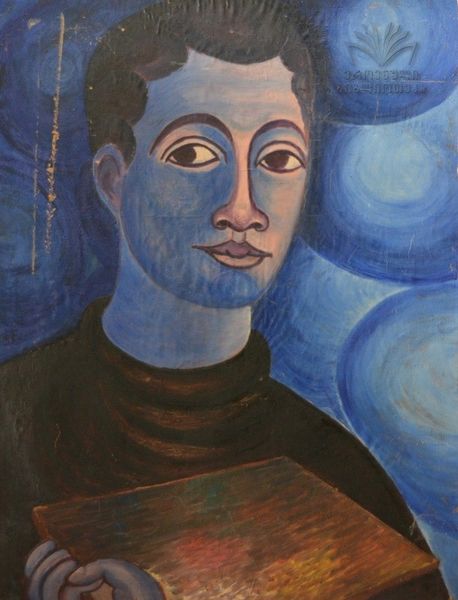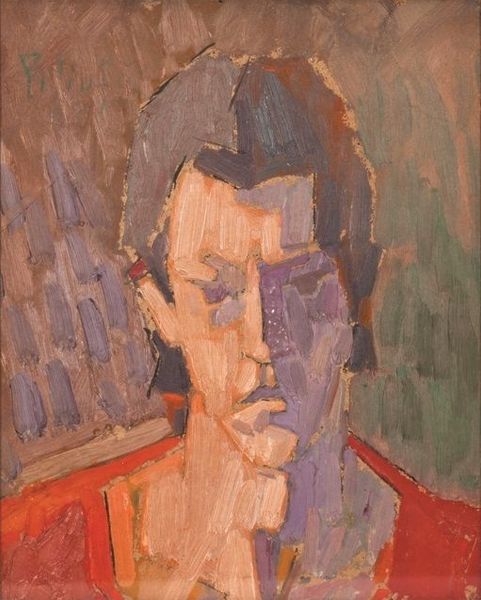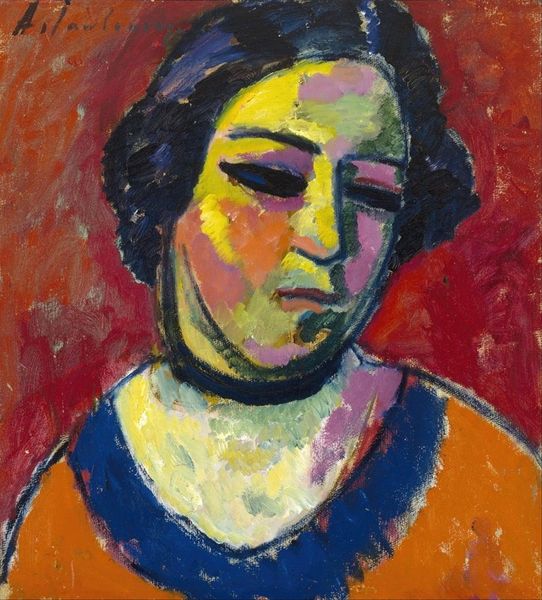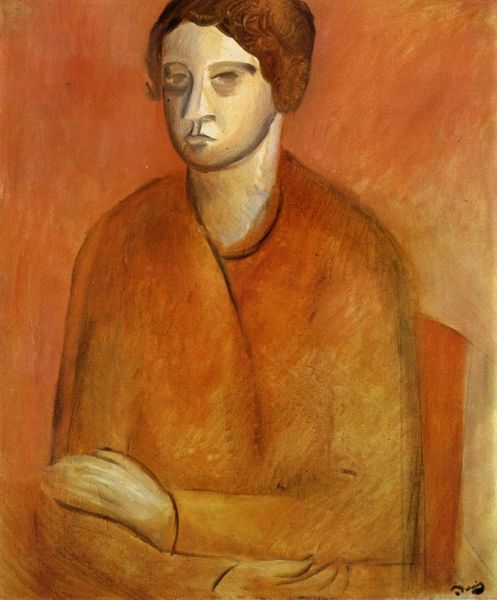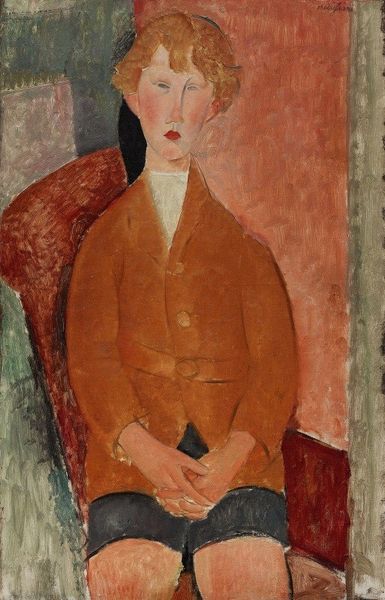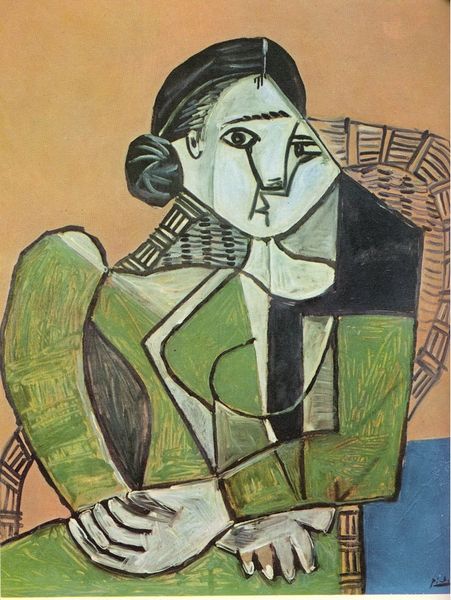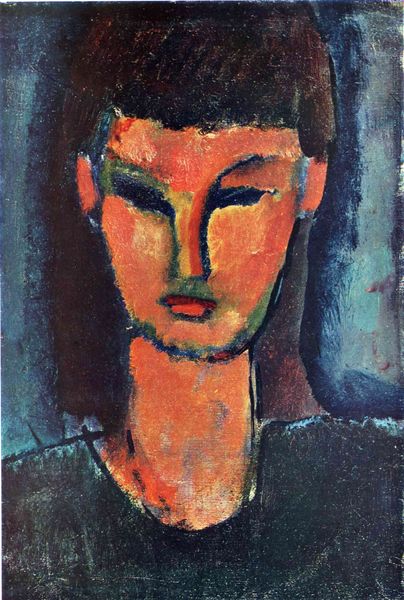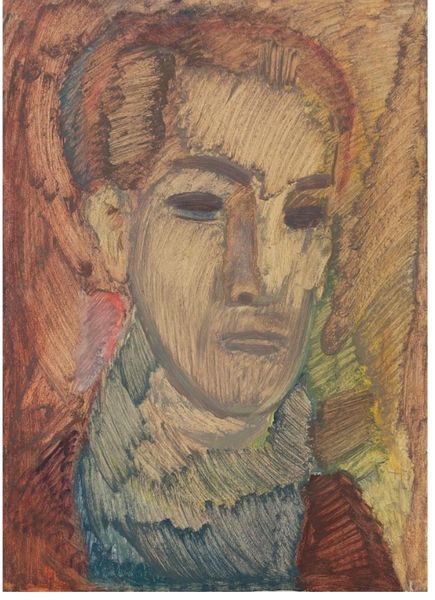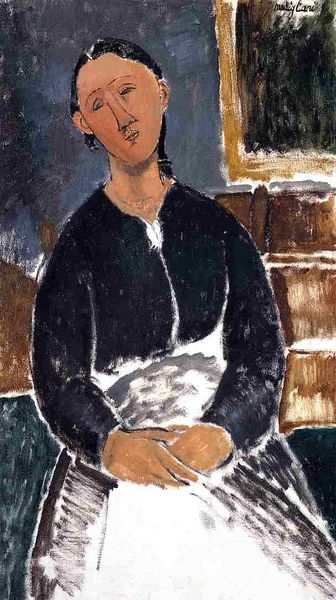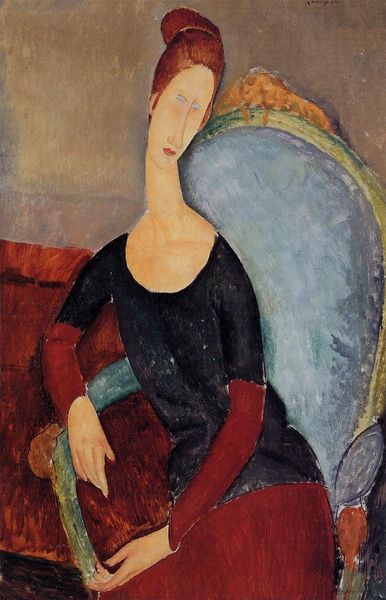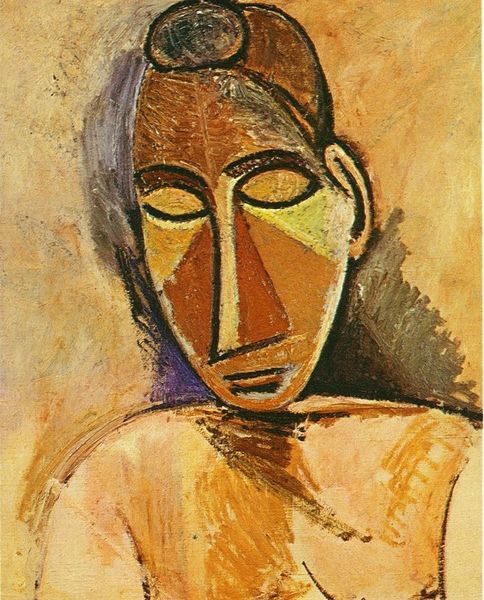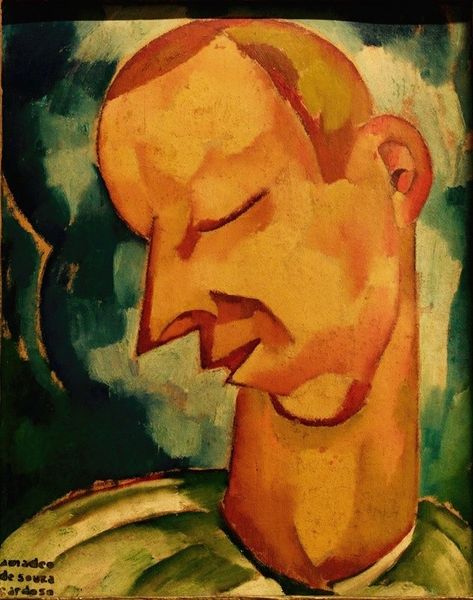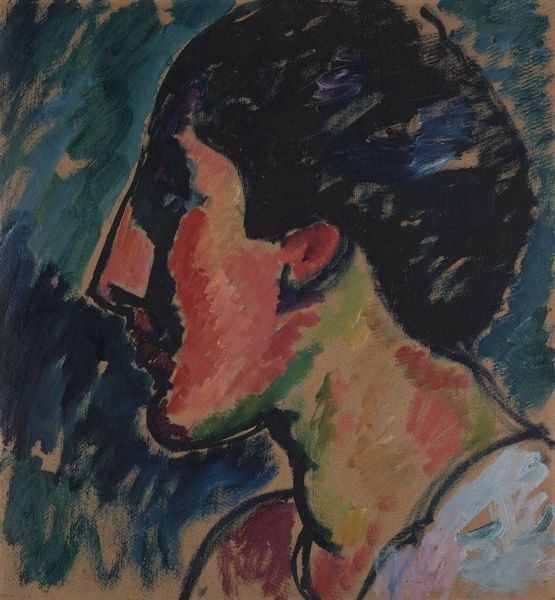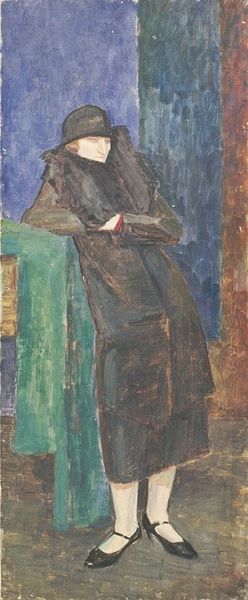
Dimensions: support: 749 x 629 mm frame: 888 x 760 x 57 mm
Copyright: © The estate of Frederick Etchells | CC-BY-NC-ND 4.0 DEED, Photo: Tate
Curator: Frederick Etchells, born in 1886, created this work, "The Big Girl," now held in the Tate Collections. I’m immediately struck by its imposing presence. Editor: Imposing, yes, but also unsettling. There's a strange flattening of space and the pointillist technique, with its small dabs of color, makes the figure feel almost pixelated. Curator: The title itself speaks volumes, challenging conventional portraiture and societal expectations surrounding women's representation during the early 20th century. Editor: Perhaps. Yet, the palette seems muted, almost melancholic. The cool blues contrasting with the warmer pinks creates a subtle tension. Curator: Etchells was associated with the Vorticists, known for their rejection of sentimentality and embracing of industrial aesthetics, yet here there's a quiet dignity. Editor: True. Still, the composition directs us to the subject's hands, clasped tightly. They convey a nervousness, a vulnerability almost at odds with the title. Curator: It's a work that invites us to reconsider prevailing narratives of female identity and societal roles during a period of immense social change. Editor: Indeed. A compelling piece—both in its formal qualities and the questions it evokes.
Comments
Join the conversation
Join millions of artists and users on Artera today and experience the ultimate creative platform.
tate 10 months ago
⋮
Spending time in Paris, Etchells was well acquainted with the Continental avant-garde, and was on friendly terms with Picasso, Braque and Modigliani. In London he formed a friendship with Roger Fry and through him other members of the Bloomsbury Group. Later he gravitated towards Wyndham Lewis and the Vorticists. Both Etchells’s sister Jessie and Madge Pulsford modelled for this painting, so it is not a formal portrait but rather a study in mood and style. The broken touches of paint and soft, Fauve-like colouring show how close Etchell’s work was to Duncan Grant’s at this time. Gallery label, February 2010
